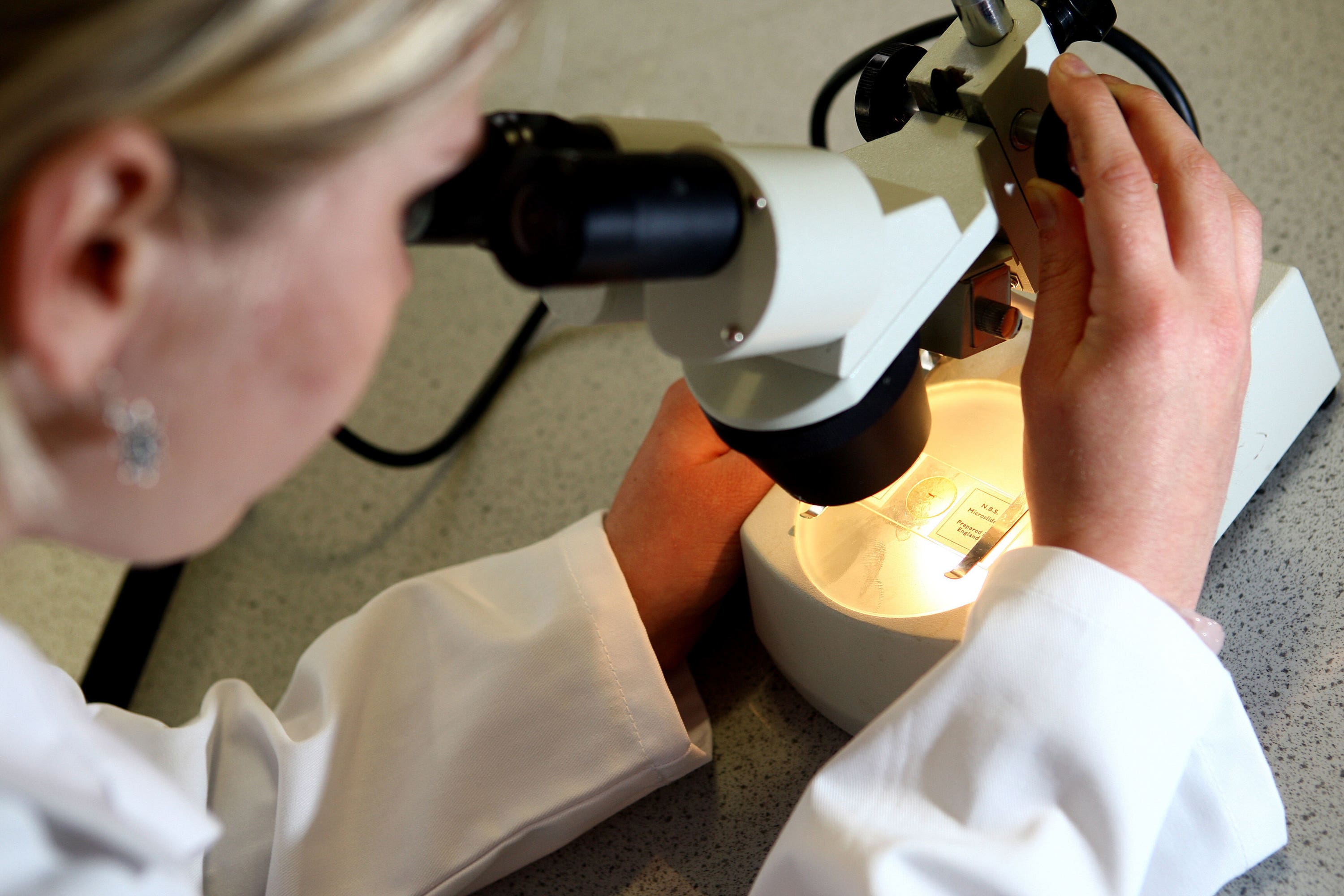Patients with rare genetic conditions to receive ‘pioneering’ new NHS service
‘Hundreds of children and adults will see inherited white matter disorders specialists and get a genetic diagnosis sooner,’ an NHS boss said.

Your support helps us to tell the story
From reproductive rights to climate change to Big Tech, The Independent is on the ground when the story is developing. Whether it's investigating the financials of Elon Musk's pro-Trump PAC or producing our latest documentary, 'The A Word', which shines a light on the American women fighting for reproductive rights, we know how important it is to parse out the facts from the messaging.
At such a critical moment in US history, we need reporters on the ground. Your donation allows us to keep sending journalists to speak to both sides of the story.
The Independent is trusted by Americans across the entire political spectrum. And unlike many other quality news outlets, we choose not to lock Americans out of our reporting and analysis with paywalls. We believe quality journalism should be available to everyone, paid for by those who can afford it.
Your support makes all the difference.Hundreds of people with rare genetic conditions primarily affecting the central nervous system will be fast-tracked to diagnosis and specialist care through a “pioneering” new NHS service.
Patients with inherited white matter disorders (IWMDs), also known as leukodystrophies, are set to benefit from faster access to expert teams, increased virtual support and improved local care from clinics providing testing and symptom management.
IWMDs are diseases which usually affect the white matter of the brain and spinal cord – causing symptoms such as impaired mobility, vision, speech and hearing, inability to swallow and loss of cognitive skills.
NHS England says they can be “can be degenerative and life-limiting”.
This new service is a pioneering model of NHS care, with a combination of virtual and face-to-face care with access to a range of experts
But early genetic testing and virtual clinical reviews will help provide a more specific diagnosis and clearer path to specialist treatment for children and adults affected by the disorders, the health service said.
These conditions are estimated to affect thousands of adults and children of all ages and ethnic backgrounds in the UK and can present at any age, leading to all levels of disabilities – for most patients, symptoms progress over time.
Children with IWMDs tend to have a low average life expectancy of up to five years from diagnosis, while adults may have a more slowly progressing condition, NHS England added.
Its new service, which expects to review more than 300 patients a year, provides a specialist multi-disciplinary team where those with a suspected IWMD can be referred by local neurology and genetics services.
The service includes access to new nationally-designated molecular genetics laboratories with expertise in next-generation sequencing, and, in particular, in IWMDs.
NHS England hopes it will be able to offer tailored care more quickly to help patients to attain a better understanding of their condition and improved symptom management.
The service will also include registering sufferers with the new IWMD clinical registry, so eligible patients will have better access to new treatments and clinical trials as they become available.
It comes after NHS England last month announced that the first child in the UK – a 19-month-old baby girl call Teddi – had received life-saving gene therapy (Libmeldy) on the NHS for a fatal form of leukodystrophy called metachromatic leukodystrophy (MLD).
The launch of the NHS’s new Inherited White Matter Disorders Diagnostic and Management Service follows the recent launch of the England Rare Diseases Action Plan 2023 by the Department of Health and Social Care, with input from NHS England.
John Stewart, director for specialised commissioning at NHS England, said: “This new service is a pioneering model of NHS care, with a combination of virtual and face-to-face care with access to a range of experts.
“This means hundreds of children and adults will see IWMD specialists and get a genetic diagnosis sooner. The new clinical registry also provides opportunities for clinicians to learn more about the condition, identify patients likely to benefit from trials of potential new treatments and will enable patients to share information about how they are feeling.”